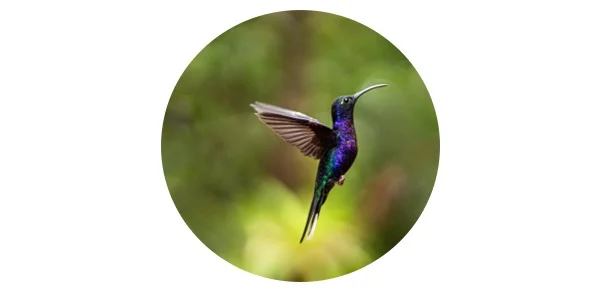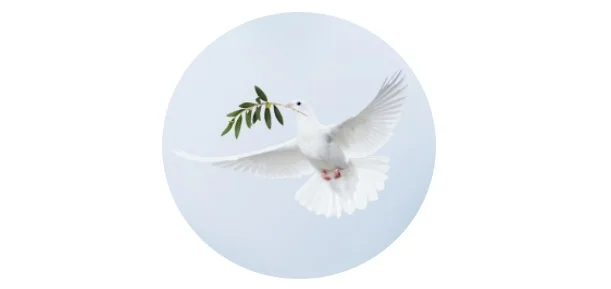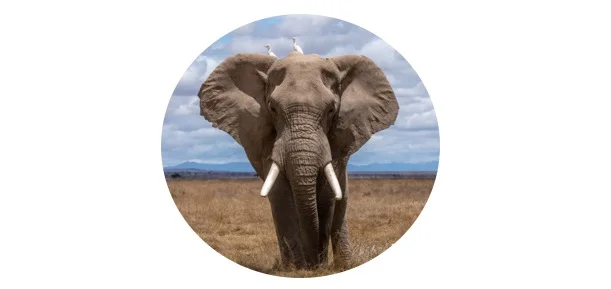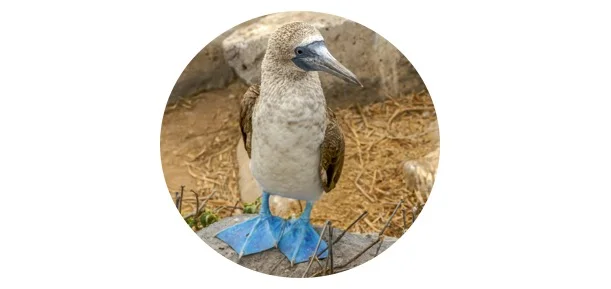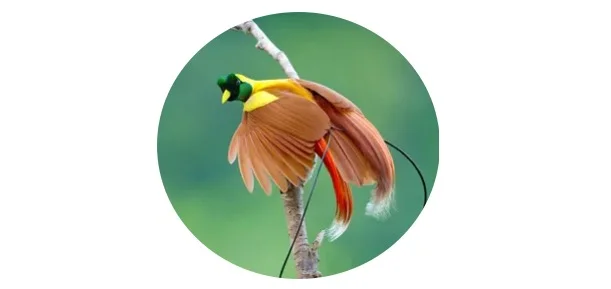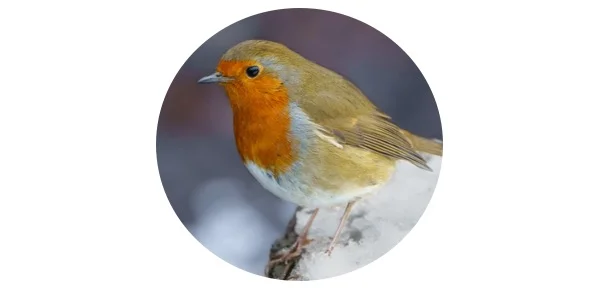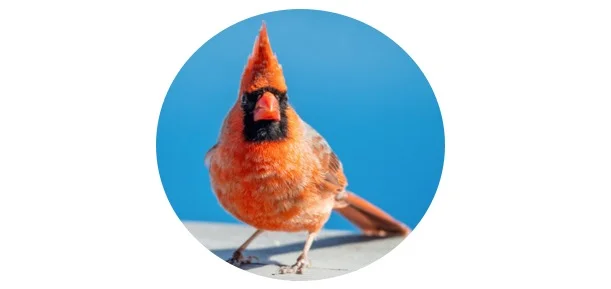Elephant Symbolism: Spiritual Meaning, Totem, Spirit, & Omens
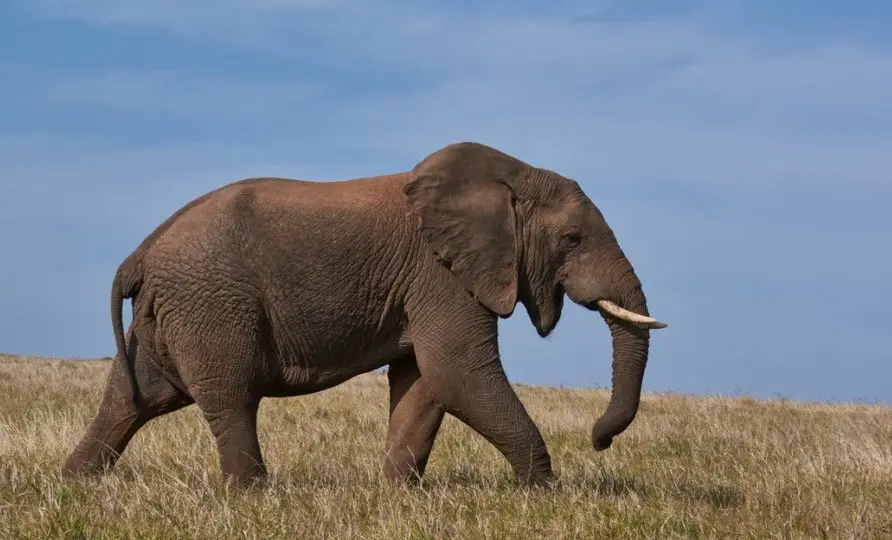
Table of Contents
Elephant Symbolism: All You Need To Know
Many people are curious in the symbolic meaning of elephants. Many eastern faiths and civilizations place a high value on elephant symbolism, and the Elephant God is revered in some of these societies. A huge physique with a gentle spirit is also a symbol of elephants. Studying elephant symbolism in depth can help you understand its precise significance in your own life.
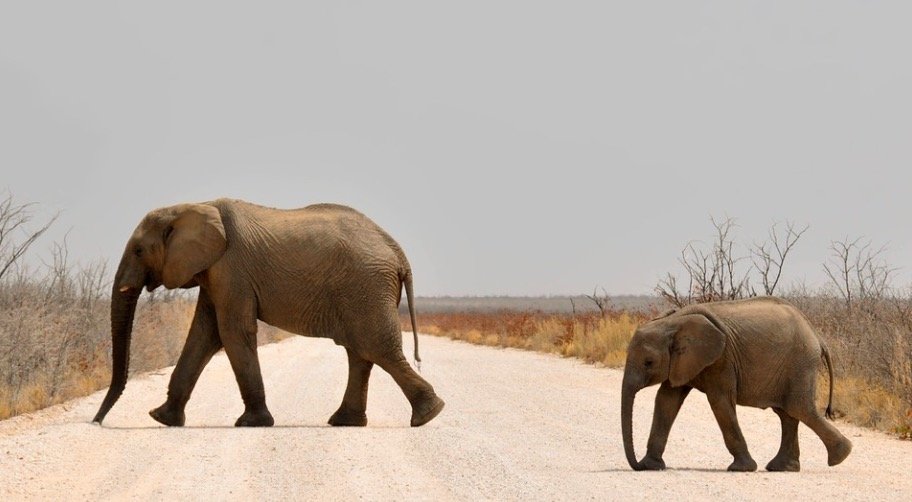
Elephant Symbolism and Meaning
For millennia, elephants have roamed the Earth. These gigantic creatures were used in battle and as a means of transportation. Legends tell us that this knowledgeable and devoted animal guided the wayward back to civilization when they were lost in the woods.
During the Renaissance, elephant-shaped artefacts were common. In terms of symbolism, elephants are a little more complicated than most people realize. As a sign of libido’s power, it represents strength in the fullest meaning of the term.
The Great Shiva’s offspring, the Elephant-headed God, is revered in Indian culture. Prior to every significant or auspicious event in India, the elephant god is worshipped because he removes barriers and clears the way for riches, health, and success.
Many Europeans associated the elephant with laziness and sluggishness. Because of their enormous size, these beasts served as royal chariots in a number of Eastern nations. Processions and palanquins relied heavily on them.
Symbols of strength, power, and life were also associated with elephants. Because of their spherical form and grey tint, they were compared to clouds. They were revered as the cosmos’ caryatids in various societies.
Elephant Native American Symbolism
North American tribes hunted enormous creatures akin to elephants known as mammoths, which did not exist at the time. Wisdom, strength, and power were all associated with the big mammoth in most tribes’ cultures.
It was considered a sign of good luck when a mammoth elevated its trunk. Symbols of power, fertility, virility and sexual energy were also associated with these huge animals. Because of this, the tusks of elephants and mammoths were utilized in animal medicine and as medicinal agents.
It wasn’t long until the mammoths were extinct. The woolly mammoth’s bones and tusks were utilized by Native elders to treat sexual or reproductive issues. Deer antlers and other huge animals’ bones, teeth, and tusks have also been used as headdresses or ornaments. Tusks were prized possessions, and finding one was a sign of good fortune.
Jewellery and presents for worthy tribe members were made from the ivory taken from walruses and elephants. Whistles made from bones and tusks were sometimes given as gifts or used as hunting tools by the Native Americans. Ivory and bone from elephants have been used to treat a wide variety of diseases.
To alleviate coughing, the Cheyenne used a plant known as Elephant’s Head (Pedicularis groenlandica) as a tea in their traditional medicine. Most Americans had relied on Indigenous Tribes of India for excursions began to depend on conventional healers as a result of these medicines.
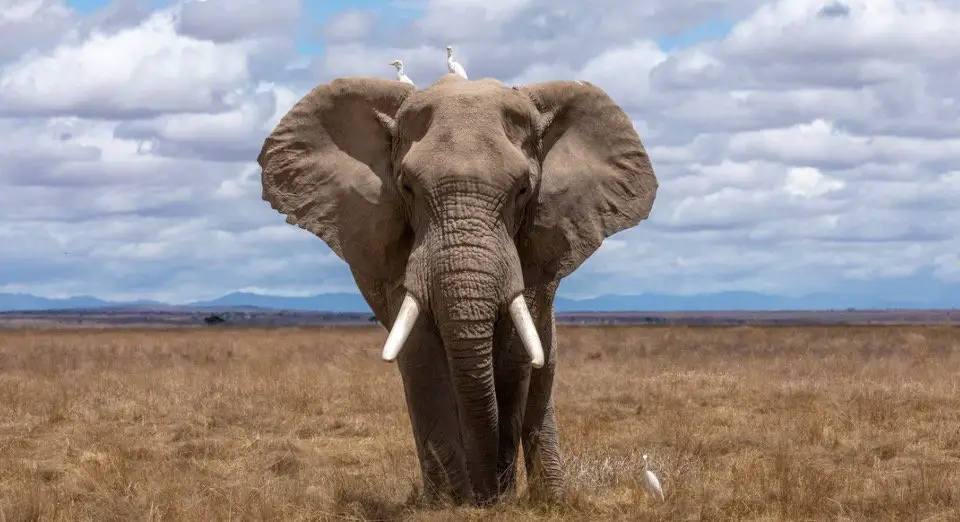
Elephant Eastern Symbolism
The symbolism of the Asian elephant is quite potent. Elephants are venerated as a sign of good fortune, wealth, power, knowledge, memory, and vigour, as well as a destroyer of evil and a remover of impediments.
In India, the Elephant Deity, who would have the head of such an elephant as well as the torso of a little child, is revered, where there will be many temples devoted to him. Shiva, the Lord of the universe, is the father of this deity. As house-warming presents, elephant deity statues are sometimes put in automobiles and given to recipients in the hopes of bringing them luck and happiness.
Until the 16th century, the Japanese had never seen elephants. There is little doubt that artists’ imaginations play an important role in elephant depiction. Other huge creatures such as leopards and dragons are also depicted in the mythology of Shinto as elephants.
Makatsugyo, a hybrid elephant, crocodile, and dolphin, may be the source of the relationship. Due to the big elephant’s link with water, people of Japan believe that spiritual elephant statues preserve wooden houses from fires and also bring rain.
These qualities are associated with elephants in Chinese lore and mythology. Along the route to the imperial palaces in Beijing’s Ming district, elephant sculptures sit and stand. Several childless ladies place stones on the horse sculptures’ backs in the idea that this would help them conceive.
Buddhists revere the elephant as well. Maya, or Illusion, Buddha’s mother, well before the birth of her son, she is claimed to have dreamt of a white elephant.
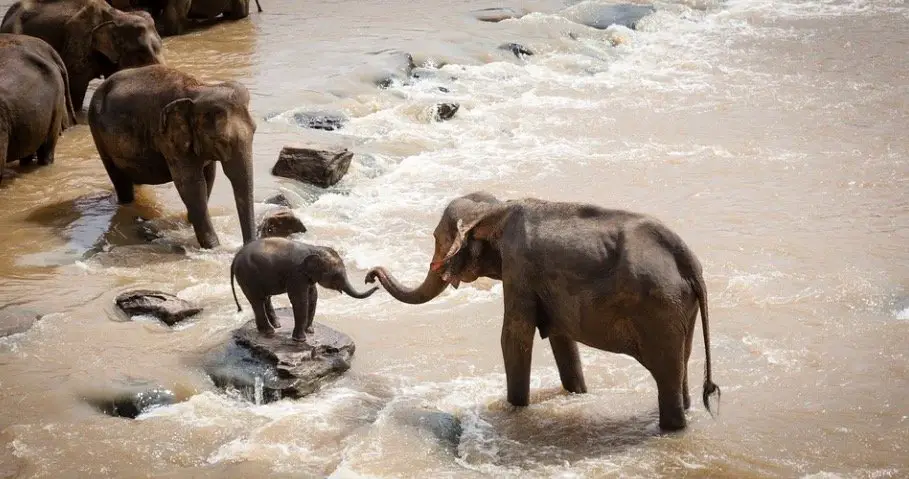
Elephant Christianity Symbolism
It’s not only the elephant’s thick skin that makes him a famous Christian image. The Bible uses the elephant as a metaphor of the power of prayer. The elephants in the narrative of Noah’s Ark gobble up all the food on board and get so obese that they threaten to topple the ship.
In his prayer to God, Noah receives a response from God in the form of a dream, in any case, God instructed him to tease the hyena. This starts a chain reaction, and the mouse runs for cover beneath the cabbage’s head.
In order to maintain the balance of the Ark, the mouse terrifies the elephants as they eat the cabbage, causing them to rush to the other end of it. Another version of the Three Blind Men tale has them touching various sections of the elephant.
After stroking an elephant’s tail, one guy claims that the elephant is flat like a fan, another says that it’s like a rope, and another says it’s like a snake. All of these men were asked to describe the elephant (the trunk).
Elephants’ spiritual significance is often used to depict God’s immensity, which cannot be adequately conveyed by any one religion or belief system. The elephant is a powerful emblem of God’s vastness and all-encompassing strength and love, as well as his infinite power.
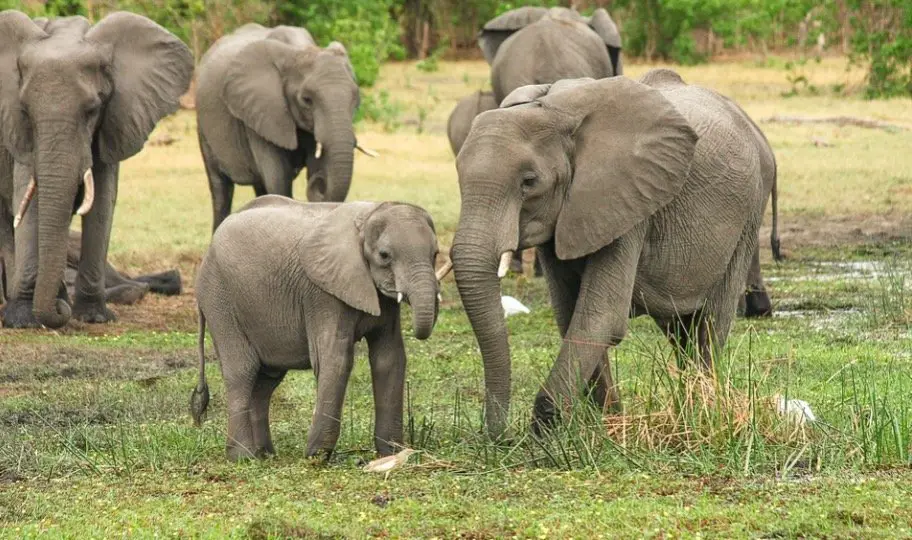
Elephant African Symbolism
Mammoths in Africa have come to represent strength of character, wisdom, and moral and spiritual authority in African elephant symbolism. Elephants were revered by African shamans as a sign of triumph and victory. Fame’s triumphant chariot is pulled by an elephant.
Mammoths, elephants, and other huge animals are common motifs in African folk art. Ivory from elephants is often used to portray the Tree of Life, which may be found in headdresses, jewellery, and other objects. These monsters are often depicted in African folklore, and they are invariably associated with knowledge.
For their ability to mediate conflicts among other animals, elephants are regarded as the King of Animals. There are several stories of elephants taking on human characteristics, and the other way around.
Many African folktales use elephants due to their deep socialization as well as high moral standards as a sign of faith, devotion, and the importance of home life. Afterward, Nzame built everything else. He was given the task of creating a Supreme Chief for the animals to govern over them.
Because of the Elephant’s immense wisdom, Nzame selected it as one of the three animals to serve as a co-president. Human leaders have always been revered by the Ashanti people of Ghana. As a result, deceased elephants are properly buried.
Elephant Medicine
Elephant drug has the qualities of grandeur, humility, power, knowledge, faith, tolerance, commitment, tenderness, perception, intelligence, love, and group awareness, as well as the elimination of impediments.
When you’re preparing to embark on a new endeavour, embark on a lengthy travel, or just feel concerned about the future, summon the elephant. This magnificent creature may be revered by chanting his or her title 108 times, as is customary in Indian culture.
The elephant is a kind and friendly giant. Despite his vegetarianism, he has never done anything to intentionally injure other animals. He cares for the young and believes in the importance of family. An adorable newborn elephant may frequently be spotted playing in its own mud.
Good luck, strength, bravery, and memory are all attributes that the elephant totem or elephant medicine may bestow upon you as you embark on fresh goals and endeavours in your life. OM, one of the primal noises that sounded at the beginning of the Universe, is symbolised by the elephant’s enormous head, which emits the sound.
You will be blessed with good fortune, excellent health, and a positive outlook on life if you take the elephant medication. It will help you get rid of blocks and provide you access to the collective knowledge of the human race. Think like a newborn elephant and a mature elephant. Feng shui elephants may bring good fortune and wealth to your house or automobile.
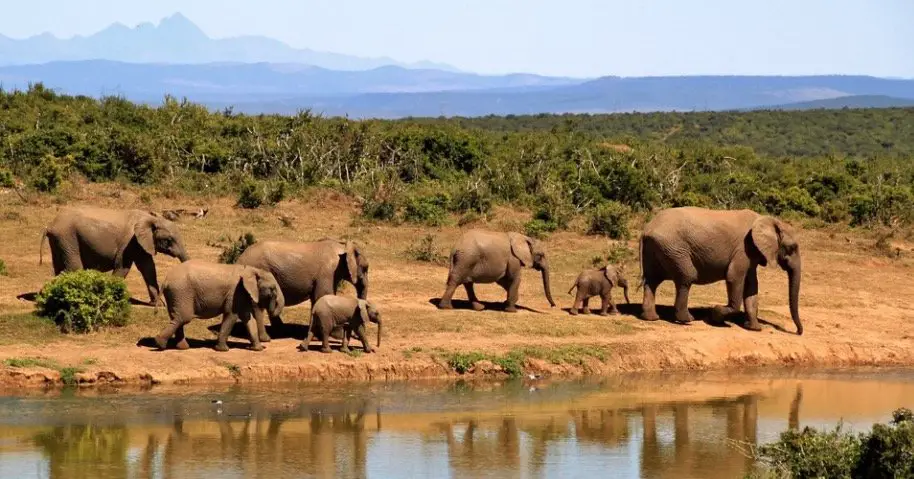
Elephant in Dreams
In dreams, an elephant is a sign of intelligence, power, and even good fortune. They might also be a way to remember the past. The elephant, according to Jung, is a symbol for the self. The elephant’s protective character represents introversion.
Dreaming about elephants is associated with good fortune and the elimination of stumbling blocks in Eastern culture. A dream involving elephants with their trunks up is a sign of good things to come, as depicted in Western culture.
It was a common belief among Native Americans of the time that dreaming of elephant carcasses signalled that the chief was about to die. The elephant is revered as the King of Animals in Africa, where he is revered as a sign of wisdom and luck.
The conflicts that arise among his followers are therefore pleasantly settled thanks to him. As a result, elephants are associated with the dreamer’s quest for enlightenment, harmony, and settlement of long-standing conflicts.
Your fun side has to be addressed if an elephant baby appears in your dreams. An elephant with a saddle in his dream was seen as a sign of good fortune by the ancient Hebrews. And if he has a vision of several elephants, then miracles beyond wonders are going to occur.
Dreaming of an elephant except for its saddle is also a bad omen, because the saddle represents the elephant’s richness. ” Those who aspire to ride an elephant are held in high regard.
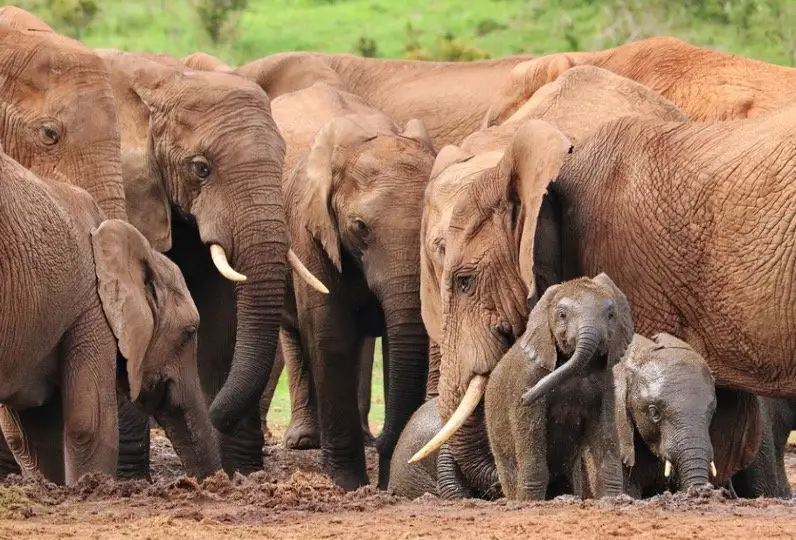
Elephant Encounters and Omens
Symbolically, what would elephants mean? During wartime, monarchs would consult the elephant omen to predict the result. The only place you’re likely to see an elephant these days is in a zoo or national park.
Wailing elephants, as well as those elephants who are wobbly on their feet, are considered terrible omens. In the near future, it portends misfortune or perhaps death. The king’s death is imminent if an elephant urinates or defecates blood, or if it vomits blood.
Dreaming about a dead elephant, according to Native American tradition, was a sign that the chief would pass away shortly. When a monarch in India heard the neighing of elephants or horses, it was considered a sign of good fortune in battle.
The Kauravas (who were later destroyed in the Great War of Mahabharata) observed a combination of elephant semen and urine, which was a bad portent for them. An elephant with its trunk up is a sign of good fortune for the onlooker.
When an elephant, for no apparent reason, begins to flee, it is a sign that something horrible is going to occur. The tusks of elephants were often hacked for ivory. If the owner noticed a glistening surface with a pleasant aroma when cutting the tusk off, it meant good fortune for the owner. A tusk that had been fractured or cracked was considered a terrible omen.
Elephant Mythology and Folklore
For centuries, the water-elephant was a tiny, tusked beast that could fight elephants and devour their brains in Burmese legend. They reside in muddy, brackish water high in the mountain ranges. The elephant is considered a deity in Hindu mythology because of its spiritual significance.
Many temples in India are devoted towards the Elephant-headed Gods. Achtequedjams, or eight elephants, are revered in certain civilizations as the pillars upon which the cosmos rests. Elephants were created by the primordial ocean’s churning to serve as Indra’s charioteer.
The elephant, as described in Chinese culture and mythology, is a powerful emblem of wisdom and caution. When Shakyamuni reincarnated throughout Japan, he was represented as a white elephant having fiery red eyes, a face, and six tusks.
Known as “dream eaters” in both Chinese and Japanese folklore, the Baku has an elephant head and a lion body. This enormous creature is the subject of a number of stories in Africa, where it is impossible to dispute its existence in the natural world unless you are a man with weapons and magic.
When it comes to African elephant mythology, this animal is usually referred to as “King Animal” because of its wisdom and might.
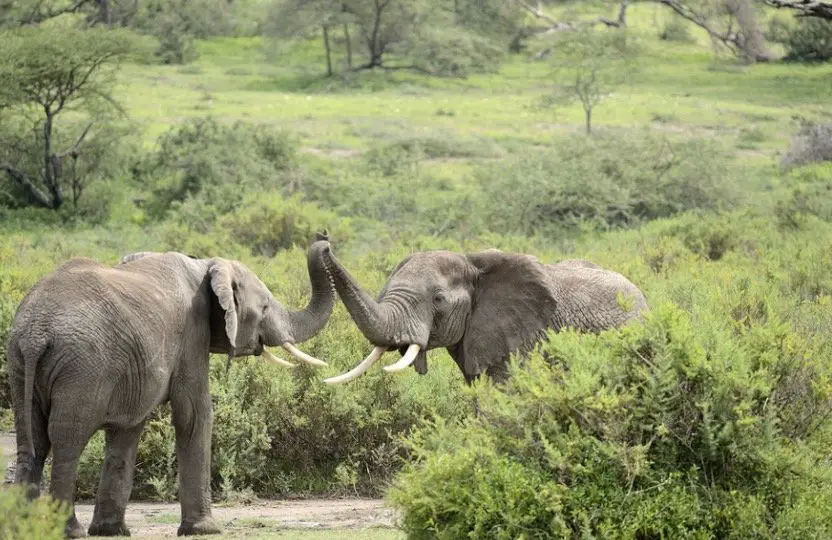
Elephant Spirit Animal
Patience, knowledge, strength, loyalty, and strong family ties are all characteristics of elephants. Your spirit animal is an elephant, and if it appears to you, it signifies you possess these qualities. That you are sensitive, kind, and committed is another way of saying the same thing.
Except when provoked, an elephant seems peaceful, stable, compassionate, and unflappable. He’s a good negotiator and a great learner. So it’s no surprise that these creatures and their human counterparts have always got along.
In addition to their wisdom, they have a remarkable memory. Elephants are said to be able to recall their previous lives. Elephants have a reputation for being devoted companions.
They create deep ties since they live in matriarchal groups. And live together in harmony with environment and to create love and meaningful relationships, one must learn from the elephant spirit animal.
Use the elephant’s healing powers to get to the heart of a problem or uncover long-buried memories. This sweet creature is capable of displaying a broad variety of emotions, from happiness to sadness. Through this strategy, the elephant will be urging us to connect with our emotions as well as trust your instincts.
If you’re furious over anything from the past, the elephant wants you to go deeper to see the more sensitive sentiments that lie behind the anger. Forgiveness and kindness are two things the elephant is pleading with you to do as a result of this message from him.
Elephant Totem Animal
It is your holy duty, says your elephant totem animal, to preserve and defend that part of yourself which is intertwined with God. In the same way that this magnificent beast is the King of the Animals, you might refer to this inner aspect of yourself as your Queen or King.
This portion of your being that is sovereign is steeped in knowledge dating back millennia. Meditation on the elephant is the most effective method of connecting with its innate power. Elephant feng shui sculptures like the Indian elephant deity Ganesha may be put in your home.
To enhance your concentration, light some sandalwood incense sticks. Helps to inspire the virtues of the elephant, such as loyalty and knowledge, as well as compassion and intellect. The elephant represents your link to the higher realms of consciousness.
Using this animal, you may communicate with your angels and spirit guides. Also, the elephant is urging you to treat people with compassion and kindness. Volunteer your time if you can, whether at a nursing facility, home care, or child’s shelter.
It is said that the elephant is a sign of good fortune, good fortune in the elimination of barriers, and good omens. The people you care about depend on you. They are your responsibility. Your bond with the elephant is built on a solid foundation of strong family relationships.
Powerful Elephants
A powerful animal, the elephant teaches us to be patient, gentle, and compassionate. The elephant is also powerful, wise, loyal, patient, gentle, and perseverant. ‘Lord of a multitude’ is the Sanskrit derivation of the Hindu Elephant God Ganesha, which means ‘Lord of a multitude’ in reference to the celestial host that provides relief to the impoverished, needy, and destitute.
It was Maya who had a vision of a white elephant that foreshadowed Buddha’s birth. Dreams are a good indicator of whether you have an elephant as a power animal. As a companion, natural guardian, or guide, consider the elephant, who is always there to assist you in any way possible.
You can rely on this mighty beast to help you over a gap. You can rely on him to assist you overcome challenges. Worship this animal’s name twice a day in meditation as an additional form of devotion.
In order to inspire confidence, the elephant encourages you to believe that you can overcome any obstacle. So don’t forget to preserve your sense of humour and sense of fun. As you meditate, invite your elephant super animal to join you.
When you’re done meditating, say your goodbyes but invite him to join you on all of your adventures. Ask for this animal’s blessings before starting a new undertaking.
Elephant Tattoo Meaning
In terms of tattoo meaning, what can we deduce about elephants? The symbolism of an elephant tattoo varies depending on where you are and the portrayal of the elephant. For those who are drawn to the elephant as a tattoo subject, there are several meanings that may be expressed via inking an elephant on their skin.
The elephant has come to represent excess weight in Western culture. The elephant tattoo meaning will become more mystical and spiritual if you go to the east. Since Lord Ganesha, the Hindu elephant god, has become the world’s most famous elephant emblem, Hindus adore him.
Lord Ganesha’s elephant tattoo symbolises the elimination of evil, the assistance of the needy, the removal of barriers, also, more broadly, blessings, great fortune, and a sense of optimism and hopefulness.
For far too many people in these Eastern Countries, an elephant-god is a symbol of hope, wealth, and success. As a student, an elephant tattoo may represent a strong memory, a closer connection to the holy, as well as good luck for examinations.
As you can see, elephant tattoos may have a wide variety of connotations. So, talk to a seasoned tattoo artist about your ideas so that you may receive the tattoo of your dreams.
Conclusion
For many people, elephants stand for inner power and wisdom. They might also stand for the concept of remembrance. Jung saw a connection between the elephant and the ego. It’s possible that an elephant’s protective nature may be seen as an introverted trait. Whether you’ve been dreaming about elephants or want to get a tattoo of one, we hope this information may help you figure out what your own personal elephant symbolism is all about.

